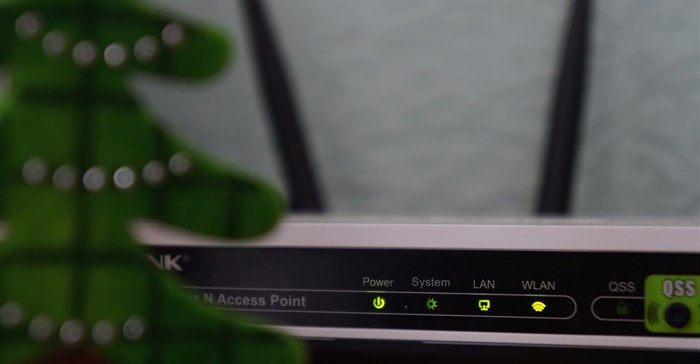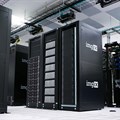
Subscribe & Follow
Advertise your job vacancies
New Wi-Fi study reveals importance for business, smart cities
Ruckus Networks and World Wide Worx recently released its 2018 Wi-Fi in South Africa study. The study focuses on the usage, priorities, intentions, and attitudes regarding Wi-Fi technology and its deployment in smart cities.

Photo by Misha Feshchak on Unsplash
The research shows that 97% of corporations and 95% of small businesses use Wi-Fi internally, with over half of these respondents stating the need for Wi-Fi access everywhere as very important. This statistic indicates that Wi-Fi has become critical to employee activity and further demonstrates the trends for small businesses are in line with larger enterprises.
However, despite the enthusiasm for pervasive Wi-Fi, large businesses in South Africa limit out-of-office use, solely depending on in-house use.
- Half of the respondents said their entire staff are using Wi-Fi internally, with the rest reporting a sliding scale
- External use, on the other hand, flipped this trend around, with 59% saying they did not allow the external use of Wi-Fi to access the corporate network, with a sliding scale declining to 13% saying they allowed all staff to access the network from external Wi-Fi.
Wi-Fi quality is more important than cost
It is a common misconception that, when making a purchasing decision, businesses consider the low cost of a provider’s service above all else. This study shows that this is untrue for Wi-Fi services. Here are our findings for cost, quality, speed and constant connectivity for Wi-Fi:
- 94% of respondents ranked quality of Wi-Fi connection to be the most important factor, followed by speed and constant connectivity ranked both at 92%.
- Cost ranked last out of the four options – at 81%.
- 93% of respondents said all four factors, quality of connection, speed, constant connectivity and cost were equally important.
The findings for uses of Wi-Fi indicated the following:
- 86% of large businesses predominantly use Wi-Fi for IoT security and monitoring, 80% for connection to the intranet and 70% for cloud integration and adoption.
- Small businesses use Wi-Fi predominantly for connection to the Internet and Intranet (95%), followed by cloud adoption and IoT integration.
These findings suggest that larger enterprises have more clearly defined needs and use for Wi-Fi.
Respondents were also given the option to rank from one to 10 (with 10 being highest) the level of importance for various features when selecting a service provider. Here are the findings:
- The most important criteria were quality of service at 94%.
- This was followed by maintenance and support at 92%.
- 83% of respondents ranked price as important, but it was only seventh on the overall list.
These findings suggest the criticality of quality and service for Wi-Fi deployments. It is clear that most large businesses would rather pay more for a better service, underlining the fact that Wi-Fi has become mission-critical in the corporate environment.
Recognising the value of smart cities
While South Africa is still a long way from having a true smart city, business decision-makers have a strong awareness of its benefits and 95% believed that wider availability of Wi-Fi would contribute to a smart city strategy. When asked what the major benefits are of smart cities, more than a third cited boosting the economy, while a similar proportion saw it attracting new businesses. Just under a third said it would reduce operating costs.
However, a significant proportion (75.5%) of businesses don’t feature smart city projects in their budgets. Since smart cities is a relatively new concept and no South African city has a clear programme in place to achieve this, the 24.5% proportion of businesses who budget for smart cities can be considered relatively high. Even more, a substantial proportion (37.8%) of companies expect to have a budget for smart city projects in the future.
Barriers to smart cities
Findings for smart cities barriers include:
- 76% of respondents indicated that fibre infrastructure is the biggest tech barrier to smart cities roll-out. This was followed by the lack of an IoT eco-system, no unified view for the city and infrastructure stability.
- Approximately 20% of respondents found the barrier to smart cities were non-technology related with the lack of funding cited by 71% of respondents.
This was followed by the cost of access at 40%.
These findings suggest that financial issues are the core challenges facing smart cities:
A smart city requires strong, reliable information and communication technology infrastructure to support the latest iterations of connectivity. This does not mean fixed-line should fall by the wayside. Instead, being smart requires a cross-platform approach that combines the best of class with the best infrastructure to deliver digital services catering for business and consumer needs.
Related
SA's retail frenzy: Black Friday index reveals explosive growth in 2024 10 Mar 2025 Africa's smart city, Waterfall City, takes top honours for urban design 24 Feb 2025 Meta's Zuckerberg's shift on fact-checking: A "sprint" to appease a new president? 16 Jan 2025 3 technological advancements SMEs need to leverage 26 Nov 2024 Smart cities in South Africa – the role of technology in urban development 29 Oct 2024 South Africa’s first travel tech magazine, GadgetWings, launched by World Wide Worx 4 Sep 2024









